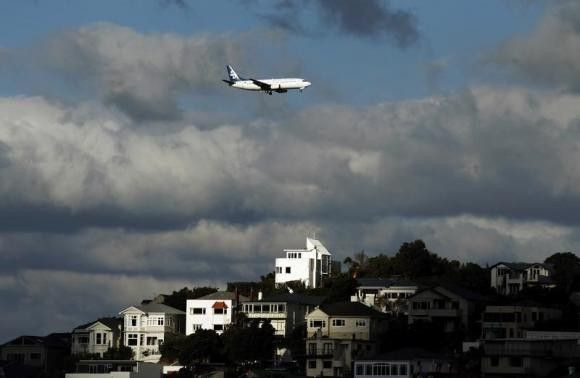Air New Zealand To Shift Heavy Maintenance Works Abroad: Many Engineering Jobs To Be Cut

Air New Zealand may chop 60 heavy engineering jobs at home, following the plan to shift its heavy maintenance work overseas. The airline is already servicing its Boeing 777s and 767s in Singapore and is looking for more overseas facilities and contractors to handle heavy maintenance of its wide body fleet.
The review of about 60 roles will also explore suitable options for the redeployment of the affected personnel to other Air New Zealand operations, the airline said. The staff in affected areas will be notified shortly whether they get a future role. They will also be provided an opportunity to appeal, if the former option does not work out. The final outcome will be known by the end of July.
Union’s Concern
However, the move has been resented by the Engineering Printing and Manufacturing Union, which expressed its displeasure and disappointment at the offshoring plan and said it would fight to keep the jobs in New Zealand. "We believe we are a world class facility with world class engineers having top safety record in engineering. We want that assurance that people flying Air New Zealand have our top safety brand and our tradesman on it," said the union's director for aviation, Strachan Crang.
Crang noted that the plan was mooted 18 months ago when the number of jobs were around 137. He said many jobs are already lost by attrition and redundancy and more could have been done to keep heavy work at home where engines, undercarriages and airframes are to be stripped down.
A worker also said the staff is "absolutely gutted" by the moves. "The only work that will remain in Auckland is A-Checks on jets and line work, with all remaining heavy maintenance being carried out by foreign staff and done in Singapore," the worker added.
Airline Clarifies
Meanwile, Air New Zealand's chief operations officer Bruce Parton clarified that modern aircraft needed much less heavy work and keeping so many staff for fewer checks is not viable. The airline’s A380 Dreamliners do not need a scheduled major check for nine years, he said and added that the “issue isn't really the cost base, the issue is that there's no work.”
In addition to the engineering staff, the workers at Hamilton, where the airline’s regional subsidiary Eagle Air is based has also reported distress as the airline is getting ready to retire its fleet of 19-seat Beech 1900D aircraft. Air New Zealand spokeswoman Brigitte Ransom said all workers in impacted areas of aircraft maintenance would be informed of an alternative job in another six months. She said many workers have already opted for voluntary retirement.
(For feedback/comments, contact the writer at k.kumar@ibtimes.com.au)




















